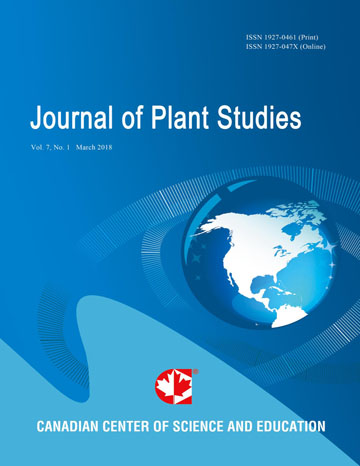Effects of Salts on Helical Protoplast-Callose-Fiber Formation and Cell Division in Leaf Protoplast Culture of Arabidopsis thaliana: Ultrastructure of PCF Using Transmission Electron Microscopy
- Manabu Hayatsu
- Suechika Suzuki
- Futoshi Ishiguri
- Shinso Yokota
- Hamako Sasamoto
Abstract
Effects of four salts addition (10-200 mM), NaCl, KCl, MgCl2, and CaCl2 were examined on the growth of protoplasts and formation of helical 1.5 mm long, protoplast-callose-fibers (PCF) in Arabidopsis thaliana liquid leaf protoplast cultures. The basal medium was Murashige and Skoog’s medium containing 1 μM 2,4-dichlorophenoxyacetic acid and 0.1 μM benzyladenine, 3% sucrose, and 0.4 M mannitol. The protoplast division was highly stimulated by the addition of 50 mM Ca2+ ion but was totally inhibited by 50 mM Mg2+ ion. Inhibition by K+ and Na+ ions was in-between. By contrast, PCF formation, whose numbers were counted under a fluorescence inverted microscope after Aniline Blue staining for β-1,3-glucan (callose), was stimulated by both K+ and Ca2+ ions but inhibited by Mg2+ ion. After selecting Arabidopsis PCF using a micromanipulator, the sub-fibril ultrastructure was examined by transmission electron microscopy (TEM). The PCFs of Betula platyphylla and Larix leptolepis, cultured with 200 mM Ca2+ and 50 mM Mg2+ ions, respectively, after long-term storage and rehydration, were examined by TEM. The effects of different factors were discussed on PCF formation and sub-structures in different herbaceous and tree plant species.
- Full Text:
 PDF
PDF
- DOI:10.5539/jps.v13n1p21
Index
- AGRICOLA
- CAB Abstracts
- CABI
- CAS (American Chemical Society)
- CNKI Scholar
- Elektronische Zeitschriftenbibliothek (EZB)
- Excellence in Research for Australia (ERA)
- Google Scholar
- JournalTOCs
- Mendeley
- Open policy finder
- Scilit
- Standard Periodical Directory
- Technische Informationsbibliothek (TIB)
- WorldCat
Contact
- Joan LeeEditorial Assistant
- jps@ccsenet.org
